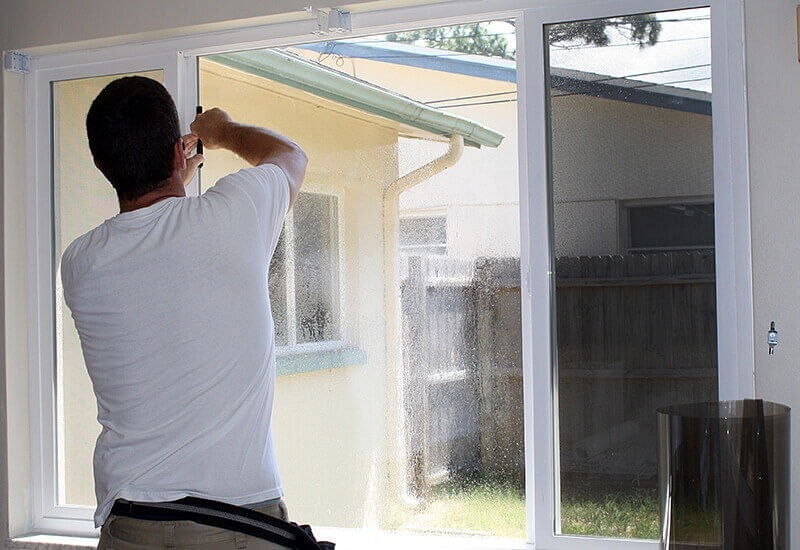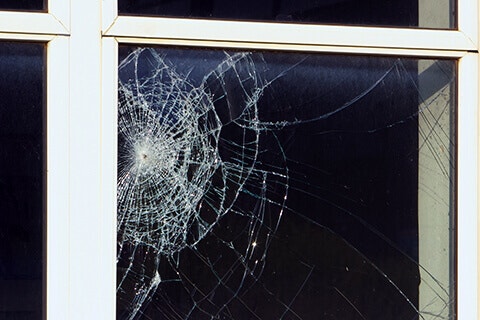Residential Window Tint: What Is It and Do I Need It?
Posted
on March 3, 2017

If you’ve been looking into ways to improve the climate control of your home, increase privacy or are simply looking at options for windows, you’ve no doubt come across home window tints. And you may have wondered, what installing window film can do for your home.
What is home window tinting?
A home window tint, also known as solar window film, is a thin layer similar to what you find on car windows. Like car window tint, it can help block out ultraviolet rays from the sun, helping to control the flow of heat through your windows.
If you’re already familiar with older versions of window tint, you may have passed on the idea — once upon a time, your options were limited and aesthetically lacking. Newer technology has allowed for advances in the product, making the options less visible and more effective.
Today, you can choose from the classic mirrored solar film, which of course still offers the greatest privacy and HVAC efficiency. Or you can select from a wide range of films that are nearly invisible, including colored and shaded.

The Benefits of Tinting Your Windows
With rising heating and cooling costs, anything that improves energy efficiency is worthy of an evaluation as a homeowner. Consider window film to block sun heat. Solar film is beneficial to your climate control year-round. In the summer, it keeps the sun’s rays from warming your home substantially. In the winter, the extra layer helps retain more heat. You’ll stay warmer in the winter and cooler in the summer using less power.
Depending on the particular form of window tinting you choose, you may also benefit from an increase in privacy. Like car window tints, a dark or reflective film can help keep someone outside from looking in, while preserving your visibility from inside the house.

Other Forms of Window Glass Film
Solar film isn’t the only type of window film available for your home, so it’s important to make sure you’re getting what you’re looking for when you make a purchase or order.
- Solar film, Low-E film, home tinting —The window films block heat by keeping out the sun’s rays and energy. You can choose to install window film to block sun heat and keep your home more comfortable.
- Decorative film or obscure film — A thin film used to change the aesthetic of a window, these introduce frosting or etching without the cost of replacing or modifying the existing glass. This type of film can help increase the privacy of your windows or doors.
- Security film —There are several options that can contribute to the safety or security of your home. Impact-resistant glass contains an interlayer (meaning it is placed inside of two layers of glass), that helps hold the glass together if it is shattered, helping prevent damage from flying debris. Tempered insulating glass options are toughened or strong, similar to automobile windshields, and are typically used where injuries from broken glass are a concern.

Does window tint really make my home more comfortable?
If you have older windows without Low E glass that you do not wish to replace yet, window film may be one way to increase their efficiency, help keep heat out and help prevent fading damage to fabrics in your home. New, energy-efficient windows may not benefit. Be sure to check to see whether installing home window tint will void your window manufacturer’s warranty. Typically, product failure, loss or damage due to the application of after-market window films to glass surfaces is not considered a covered defect by the manufacturer. Please consult your manufacturer's warranty for complete details.
Window film is not a fix-all though because installing reflective film insulation does not address an inefficient window frame. Plus, it lacks the added benefit of insulating argon gas.
Maybe it is time to consider window replacement. If so, you may be best suited by choosing a window tint that is applied directly by the manufacturer. When selecting the right options for your home, make sure to voice your concerns or interest in window tinting. The window experts at Pella can help you make a decision about what tinting options will best suit your aesthetic and home comfort needs.
Schedule a free consultation to find windows and doors for your home.
